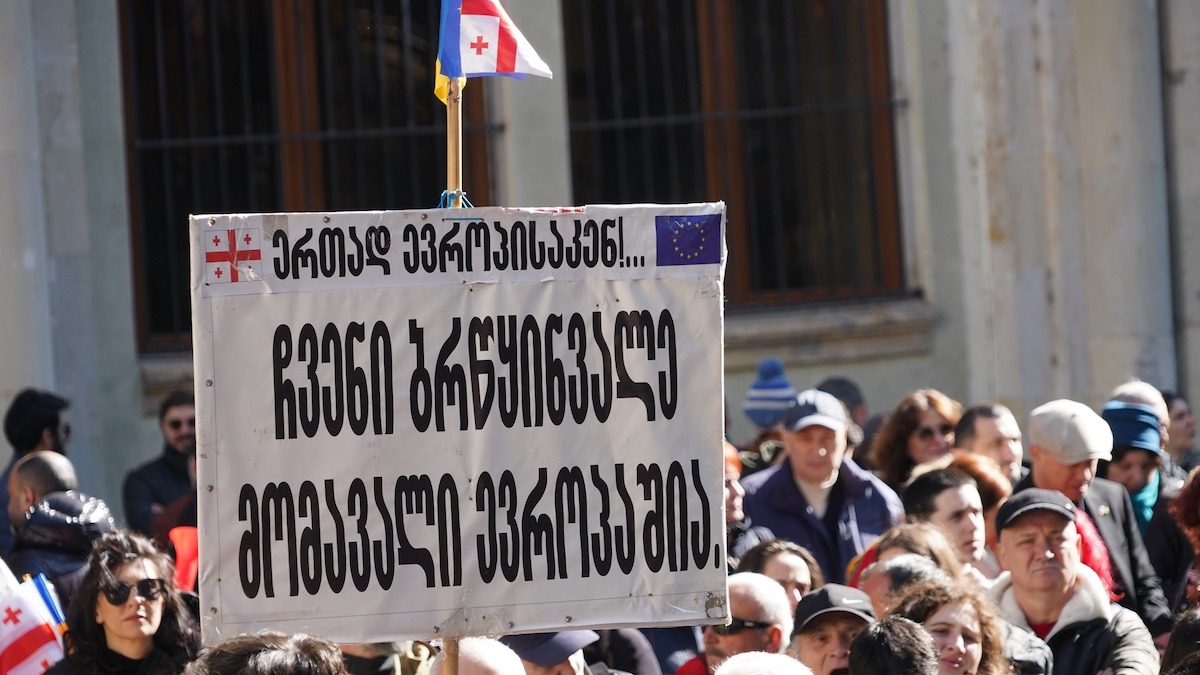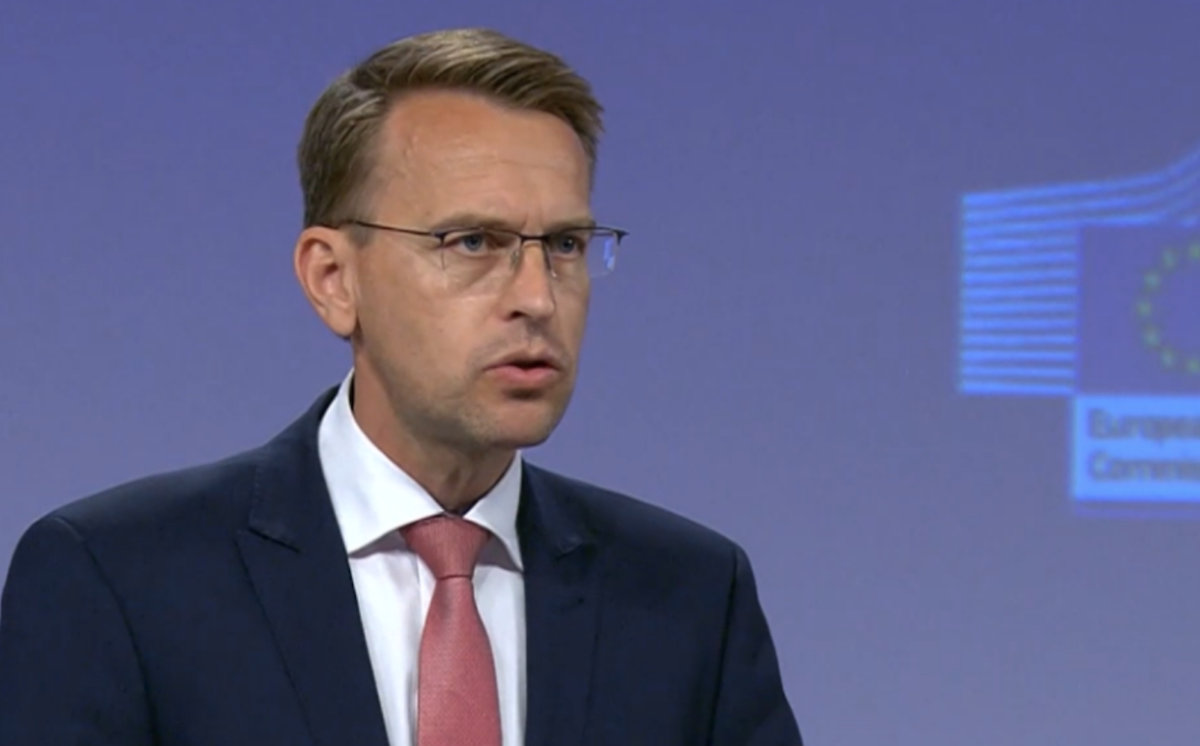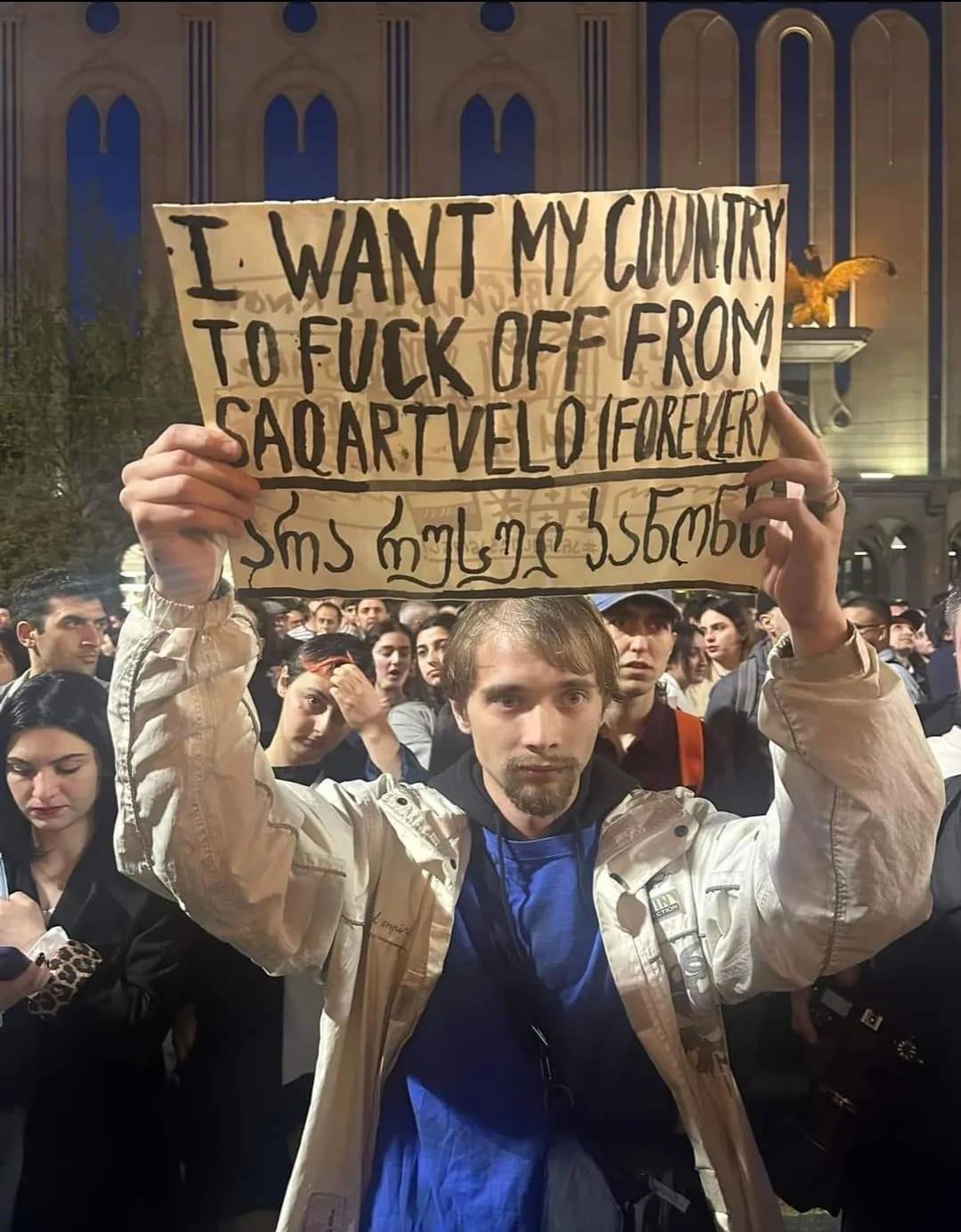European Parliament: "Foreign agent" law could stall Georgia's EU accession talks
European Parliament’s resolution on Georgia
The European Parliament has published the final draft resolution on Georgia, with a vote scheduled for April 25th. The resolution strongly condemns the attempts by the ruling party “Georgian Dream” to pass a “foreign agent law” and states that it does not align with the values and principles of the European Union. According to the resolution, this bill damages Georgia’s international reputation and threatens the country’s Euro-Atlantic integration. The resolution also calls on the Georgian parliament to halt the consideration of the bill and urges the authorities to respect the population’s right to freedom of assembly and peaceful protests.
What does the draft resolution say?
The European Parliament
1. Strongly condemns the re-introduction of the controversial draft law on ‘transparency of foreign influence’ which would impose debilitating restrictions on civil society and independent media and thereby undermine the possibility of their operating freely, and has therefore been met with massive protests by the Georgian public, civil society organisations, independent media, prominent public figures and the country’s European and international partners alike;
2. Underlines that the draft law is incompatible with EU values and democratic principles, runs against Georgia’s ambitions for EU membership, damages Georgia’s international reputation and endangers the country’s Euro-Atlantic integration;
3. Stresses that EU accession negotiations should not be opened as long as this law is part of Georgia’s legal order;
4. Urges, therefore, the Georgian Parliament to halt the parliamentary proceedings leading to adoption of the law and urges the Georgian Government to honour the commitments it made in March 2023 when it announced that it would unconditionally withdraw its draft law to impose restrictions on civil society and independent media and would not propose such a law again; calls on the Government of Georgia also to abstain from submitting any further legislative proposals that contradict the principles of democracy, the rule of law, human rights and fundamental freedoms and which would therefore run counter to the Copenhagen criteria for EU membership;
5. Highlights that the draft law betrays the aspirations of the large majority of the Georgian people to live in a democratic society, continue democratic and rule of law reforms, pursue close cooperation with Euro-Atlantic partners and commit to a path towards EU membership;
6. Emphasises that the rights to freedom of expression and assembly and to peaceful protest are fundamental freedoms and must be respected under all circumstances, particularly in a country aspiring to join the EU;
7. Urges the Georgian Government to respect Georgian citizens’ constitutional rights and therefore expresses its concern about reports of riot police using disproportionate force to disperse protesters demonstrating against the controversial draft law; calls on the Georgian authorities to investigate and hold accountable those responsible for the unlawful and disproportionate use of force;
- “Georgia becomes Putin’s personal cash box” – Experts on offshore law and the ongoing protests
- Georgia may lose its ‘safe country’ status if it passes the ‘foreign agent’ law – SPD Germany
- “Georgian Dream leader says ‘we’re not ready for the EU” – Sociologist’s opinion
8. Underlines that the public watchdog role exercised by civil society and independent media is essential to a democratic society and crucial in advancing EU accession-related reforms and therefore calls on the Georgian authorities to do their utmost to guarantee an enabling environment in which civil society and independent media can thrive;
9. Denounces the fact that the Georgian Government is taking inspiration from highly controversial similar Russian legislation, such as Russia’s ‘Foreign Agents Law’, which intentionally labels and discriminates against civil society organisations and activists and has also been used to stifle opposition to Russia’s war of aggression against Ukraine and silence any remaining critical voices in the country;
10. Recalls that the European Council of 14 and 15 December 2023 granted Georgia candidate status on the understanding that the relevant steps set out in the Commission recommendation of 8 November 2023 would be taken; stresses that this recommendation called on Georgia to ensure that civil society was able to operate freely and to fight disinformation against the EU and its values, and that the draft law violates both objectives;
11. Reminds the Georgian Government of the commitments it made and the values and principles it subscribed to when it applied for EU membership and calls on the Vice-President of the Commission / High Representative of the Union for Foreign Affairs and Security Policy, the Commissioner for Neighbourhood and Enlargement and the President of the Commission to do the same;
12. Invites the Commission to submit an interim assessment of Georgia’s progress related to the implementation of the nine steps indicated in the Commission recommendation of 8 November 2023;
13. Calls on the Commission and the Member States to assess the impact of this draft law on the EU’s role as a donor in Georgia and to communicate clearly to the Georgian Government and Parliament about this possible impact and its consequences for EU funding in general;
14. Urges the Georgian Government to return to its European path, uphold its commitment to respect, strengthen and promote democracy, the rule of law, human rights and fundamental freedoms, and genuinely engage in the full implementation of the steps required to fulfil the conditions for candidate status and EU membership, in a spirit of engagement and cooperation with Georgia’s civil society and political opposition;
15. Reiterates its unwavering support for the Georgian people’s legitimate European aspirations and their wish to live in a prosperous country, free from corruption, that fully respects fundamental freedoms, protects human rights and guarantees an open society and independent media; underlines that the decision to grant Georgia EU candidate status was motivated by the wish to acknowledge the achievements and democratic efforts of Georgia’s civil society as well as the overwhelming support for EU accession among its citizens;
16. Calls for an impartial and independent long-term international election observation mission by the Organization for Security and Co-operation in Europe Office for Democratic Institutions and Human Rights to monitor the country’s upcoming parliamentary elections in October 2024;
17. Instructs its President to forward this resolution to the Vice-President of the Commission / High Representative of the Union for Foreign Affairs and Security Policy, the Council, the Commission, the governments and parliaments of the Member States, the Council of Europe, the Organization for Security and Co-operation in Europe and the President, Government and Parliament of Georgia.
On April 22, the European Parliament discussed the bill initiated by the “Georgian Dream” regarding “foreign agents” and the violent dispersal of a peaceful demonstration in Tbilisi. Various groups of European parliamentarians prepared draft resolutions, in which they demanded that sanctions be imposed against the founder of the “Georgian Dream,” oligarch Bidzina Ivanishvili, deputies who voted for the bill, and high-ranking officials of the Ministry of Internal Affairs.
During the same session, some Members of the European Parliament demanded the release of former president of Georgia, Mikheil Saakashvili, from prison.





















